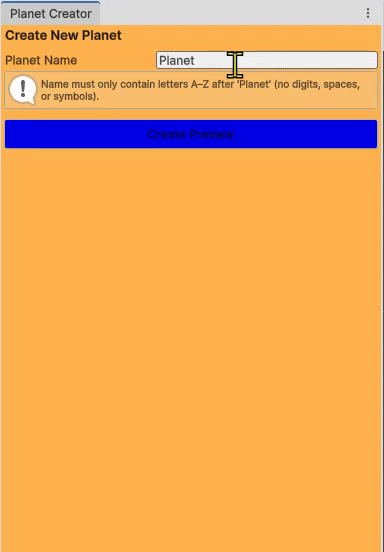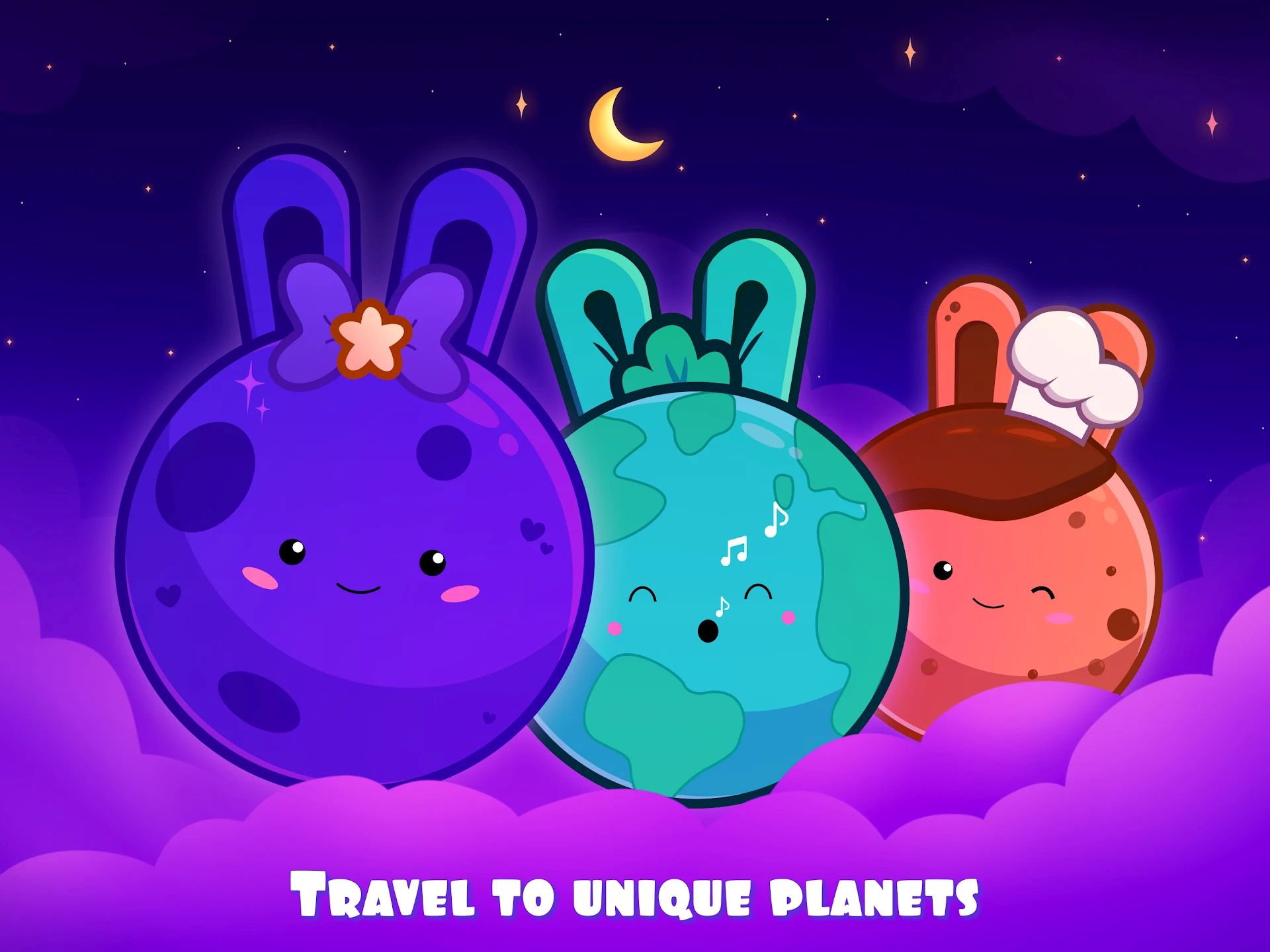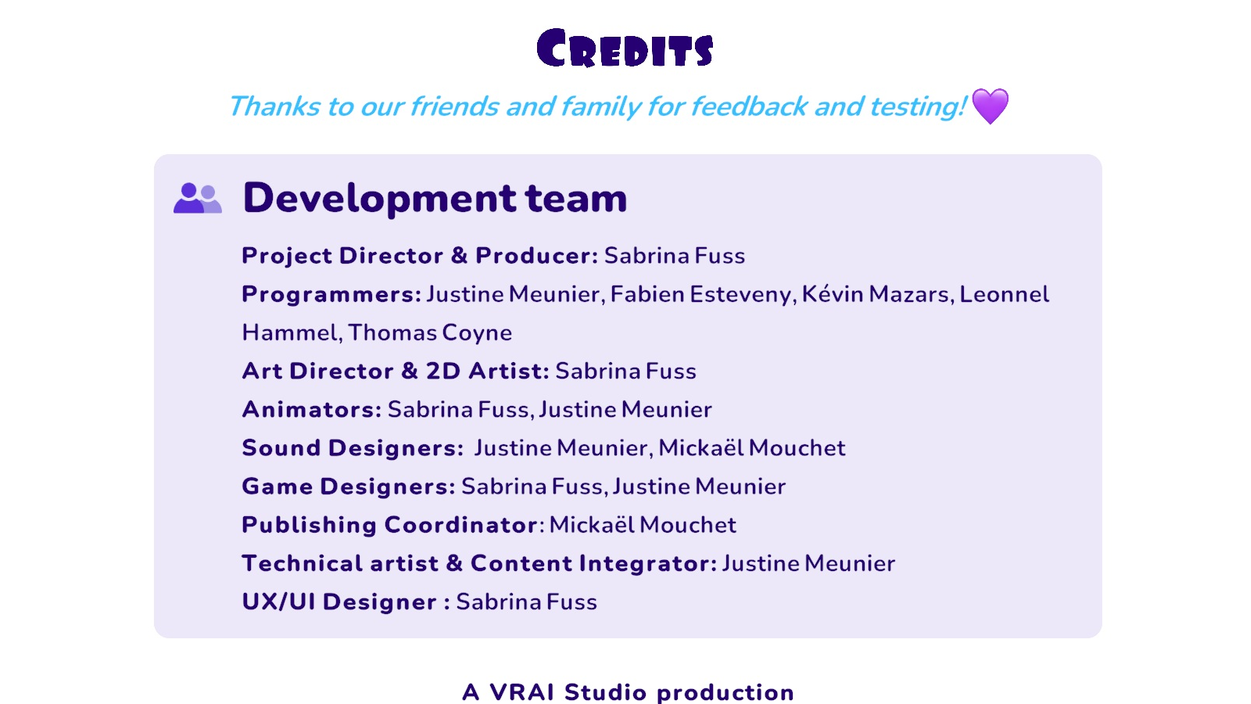Bunny Kids

I worked on this project during my internship at VRAI STUDIO
I Worked On :
Tools - Gameplay features - Build iOS & Android - Optimization & Profilling - Code Refactoring
Gameplay & Purchase Integration Programmer
7 Developers
1.5 Years (3 month in internship)
10 September 2025
< What I worked on /> // Tools • Mobile Intergration • Builds

Planet Creator Tool

Modular refactor
Refactored existing planet-handling code to make it modular and easier to extend
Designer-friendly UI
Built a Planet Creation Tool in Unity so non-technical staff can create & configure planets without engineering support
Robust validation
Implemented null checks, validation, and safe creation patterns to prevent runtime issues during content creation
Preview + prefab setup
Streamlined workflow by integrating preview generation, asset creation, and prefab setup directly in the Editor
Faster iteration
Reduced repetitive engineering tasks and sped up iteration cycles for content updates
Consistency rules
Added naming and data validation rules to enforce consistency and prevent invalid assets
IAP (In-App Purchases)

Custom IAP integration
Built a tailored IAP system on top of Unity's IAP Catalog to meet project requirements and simplify store integrations
Platform-agnostic flows
Unified purchase flows across App Store and Play Store with consistent handling for consumables, non-consumables, and subscriptions
Secure validation
Implemented receipt verification, robust validation and error handling to prevent edge-case crashes and ensure purchase integrity
Editor tooling
Created editor utilities for catalog updates, SKU mapping, and QA testing so non-technical team members can manage offerings safely
Better UX & QA
Added restore purchases, sandbox QA support, and clear user-facing error messages to improve customer experience and reduce support load
Analytics & security
Instrumented purchases with analytics and server-side verification hooks for entitlement management, fraud mitigation, and monetization iteration
Faster monetization
Reduced engineering overhead for store integration and accelerated monetization iteration cycles through rapid configuration and testing

.gif)
Painting Tool
.gif)
Modular refactor
Refactored the painting tool to separate rendering, input, and data layers for easier maintenance and faster feature rollout
Profiling-driven improvements
Profiled CPU/GPU hotspots across representative devices to identify bottlenecks and prioritise optimizations with measurable gains
Jobs & Burst optimization
Rewrote heavy per-pixel and brush math using Unity Jobs + Burst to parallelize work safely and reduce main-thread load
Device-aware scaling
Implemented adaptive quality (tile sizes and sample rates) to respect compute limits on low-end hardware while preserving UX on high-end devices
Lower latency
Optimized input handling and asynchronous processing to improve brush responsiveness and reduce perceived lag during painting sessions
Editor tooling
Added debug overlays, performance toggles, and QA utilities so designers can test paint settings and performance without developer support
Robust error handling
Introduced defensive checks and graceful fallbacks (including single-threaded mode) to avoid crashes on constrained devices
Measurable impact
Reduced main-thread CPU time and frame drops, improved average frame rates on target devices, and shortened iteration cycles for designers
Builds & Release

Xcode iOS builds & debugging
Compiled, signed and debugged iOS builds in Xcode, used device debugging, crash logs, and symbolicated stacks to find and fix platform issues
App Store release management
Prepared archives, managed provisioning profiles and signing
Android / Play Store packaging
Built signed Android packages from Unity (Gradle/keystore), prepared release artifacts
Platform debugging & diagnostics
Integrated crash reporting and symbolication workflows, and used device/console logs to quickly triage platform-specific regressions







